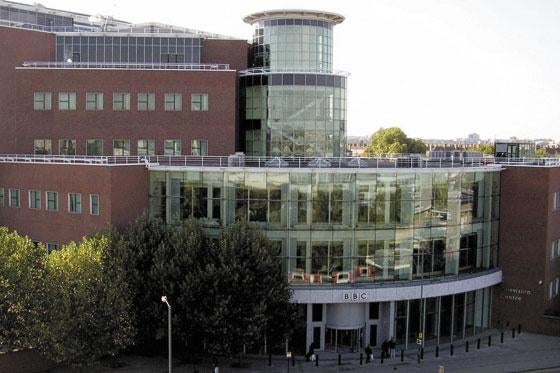
The BBC today confirmed plans to axe around 2,000 jobs across the corporation in a bid to make annual savings of £670m within the next five years.
The announcement comes after the corporation’s nine-month ‘Delivering Quality First’ consultation triggered by last year’s licence fee settlement, which froze the BBC’s funding and its £145.50 fee until 2017.
The agreement, which also saw the BBC assume new funding responsibilities including the World Service and S4C, required the BBC to make savings equivalent to at least 16 per cent of its current licence fee income.
The NUJ has condemned the cuts – claiming that since 2004 more than 7,000 jobs have gone at the BBC – and urged the licence fee deal to be re-opened, describing the current situation as unsustainable.
NUJ general secretary Michelle Stanistreet said: ‘This is a watershed moment in the BBC’s history – the reality is that the BBC will not be the same organisation if these cuts go ahead.
‘You cannot reduce budgets by 20 per cent and pretend that the BBC will still be able to be a world class broadcaster. Quality journalism and programming is inevitably going to be diluted. If the BBC presses ahead with these changes strike action across the corporation seems inevitable.”
In a statement the corporation said director-general Mark Thompson had set an additional four per cent savings target for reinvestment back into programming, which would help contribute to total savings by 2016/17 of 20 per cent.
The BBC has now launched a public consultation into the proposals.
The chairman of the BBC Trust, Lord Patten, said: ‘The BBC is far from perfect, but it is a great institution and, at its best, a great broadcaster. We have a tough and challenging new licence fee settlement, but it should still be possible to run an outstanding broadcaster on £3.5bn a year.
“The Trust’s view has been clear from the start of this process – the BBC must look to run itself as efficiently as possible before we consider cutting services.
‘Over half of the savings announced today will come from changes to operations, but there will need to be some changes to services, and we now need to test BBC management’s proposals for this.
‘We agree with the direction that the Director-General has taken, but we want to hear what the public think, as it is ultimately their BBC.”
Thompson added: ‘This is a plan which puts quality and creativity first. It’s a plan for a smaller BBC, but a BBC which uses its resources more effectively and collaboratively to deliver a full range of services to the public.
‘The plan meets the savings target we agreed in last year’s licence-fee settlement, but also identifies nearly £150m per year to invest in new high quality output and in the platforms and services of the future.
“But it is a plan which also means stretching efficiencies and significant job losses. It’s my judgement that this is the last time the BBC will be able to make this level of savings without a substantial loss of services or quality or both.”
In its consultation the corporation wants to hear the public’s views on changes to the BBC’s TV channels including:
• ‘Protecting BBC One and Two in peak time, albeit with small reductions in entertainment programming and acquisitions
• ‘Making BBC One the channel for all new general daytime programmes
• ‘Changing BBC Two’s daytime schedule to feature international news and current affairs programmes at lunchtime. Other parts of the daytime schedule would be repeats of mainly factual programmes, including science, history, natural history and arts, as well as live sport
• ‘Re-focusing BBC Three and BBC Four to play supporting roles to the two bigger channels; and
• ‘Replacing the HD channel with an HD version of BBC Two to broadcast alongside the existing BBC One HD channel.”
Changes to the BBC’s radio stations include:
• ‘Protecting Radio 4 by keeping its unerlying budget stable, excluding the impact of productivity savings
• ‘Greater sharing of news bulletins between Radio 2 and 6 Music, Radio 1 and 1Xtra, and Radio 3 and 4
• ‘Reducing the amount of original drama, live music and specially recorded concerts at lunchtime on Radio 3, and reviewing the BBC’s orchestras and singers
• ‘Reinvestment in the Proms to maintain quality
• ‘Focusing Radio 5 Live on core output of news and sport
• ‘A new more focused Asian Network with a 34 per cent reduction in its content spend and
• ‘Making savings in radio distribution costs through long term changes to Medium Wave and Long Wave.”
Changes to programming and services in the nations and regions:
• ‘For TV, protecting underlying investment in news programming; producing fewer non-news programmes and rebroadcasting more of them to UK audiences; and increasing investment in network programming produced across Scotland, Northern Ireland and Wales
• ‘For nations radio, reducing investment in non-news programming and focusing on peak-time
• ‘For English local radio, focusing spend on peak-time programmes, but with increased sharing across regions in off-peak slots.”
Changes in approach to digital access and distribution including:
• ‘Continuing with previously announced plans to reduce BBC Online’s budget by 25 per cent, but with some reinvestment in future digital development
• ‘Reducing Red Button transmissions making the service consistent across all digital TV platforms.”
- To contact the Press Gazette news desk call 020 7936 6433 or email pged@pressgazette.co.uk
Email pged@pressgazette.co.uk to point out mistakes, provide story tips or send in a letter for publication on our "Letters Page" blog

